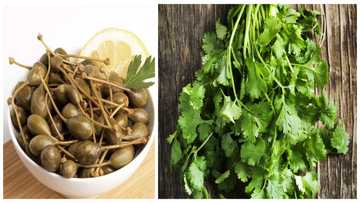Traditional jollof rice Ghana recipe
Jollof rice, also known as Benachin, is without a doubt a popular dish in many West African nations. It is mainly a one-pot dish that incorporates many different ingredients together. It is served in gatherings and weddings due to its national popularity among the West African people. While the jollof rice Ghana is native to Ghana, as its name suggests, you can still enjoy the delicacy in neighbouring countries such as Gambia, Mali, Nigeria, Senegal, Ivory Coast, Liberia, and Cameroon.
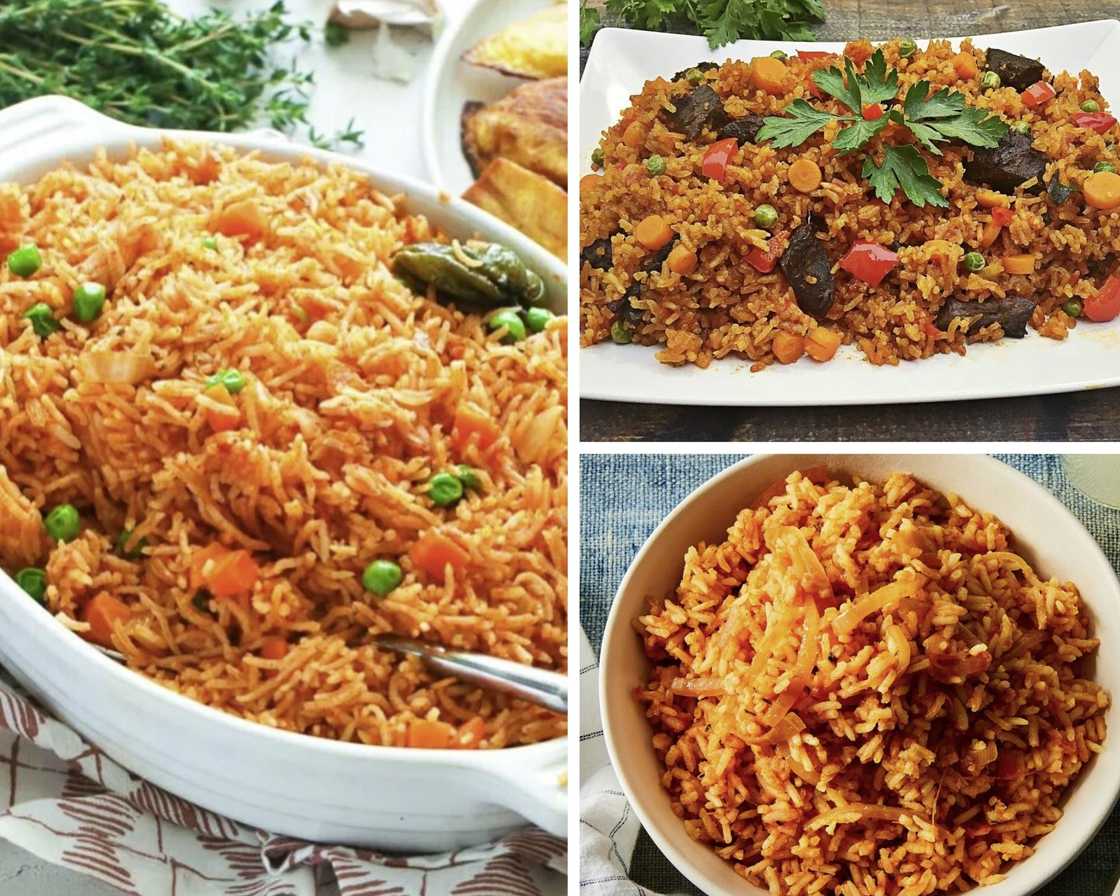
Source: UGC
This dish can be found in many parts of the world thanks to the internet and globalisation. While most Ghanaians prefer to serve it with lamb or beef sauce, you will see red meat replaced with turkey, chicken, or even fresh vegetables in some places. The beauty of the Ghanaian jollof rice recipes is that it is a one-pot dish.
The preparation procedure is short, but the results are amazing. While it’s a thing to argue about the delicacy of the Ghanaian jollof in comparison with the Nigerian recipe and which one came first, it is undeniable that they are both delicious.
Ghanaian jollof rice recipe
Here’s a recipe for preparing Ghana jollof rice with goat meat. The ingredients or this recipe may slightly differ with those whereby the stew or choice of protein is different.
READ ALSO: How to prepare bofort the Ghanaian style
Ingredients

Source: UGC
You need:
- 6 large tomatoes
- 4 large onions
- 4 cups (800 grams) of basmati rice (long grain rice)
- 2 chillies (optional, you can add more according to your choice)
- 2 tablespoons of tomato paste
- 4 spoons of vegetable oil
- 500 grams of goat meat
- Salt and ground black pepper (according to taste)
- 1.5 litres of water or stock (you can also add one stock cube for a better seasoning)
- 6 cloves of chopped garlic (you can add more according to your choice)
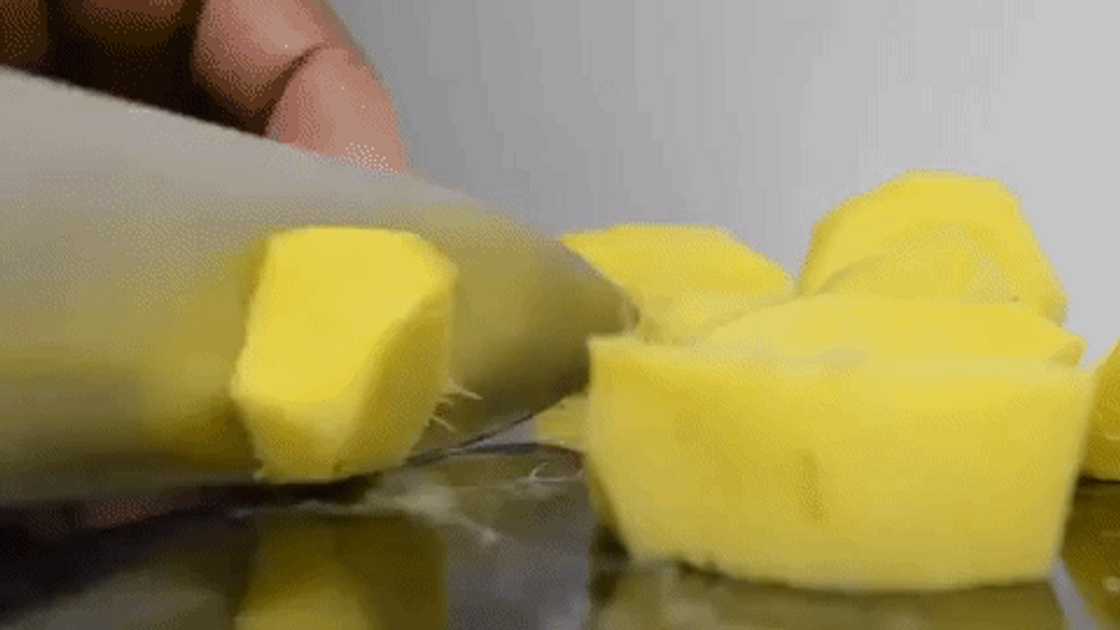
Source: UGC
READ ALSO: Bambara beans - recipes, health benefits and other facts you need to know
Preparation
Follow these steps:
- Wash the meat properly and rinse it repeatedly in clean water
- Chop it into chewable pieces and add into a medium or large pot
- Add 1 chilli, 1 large onion and some salt then cover with water then bring to heat
- Let it boil for anything between 45-60 minutes while on medium heat
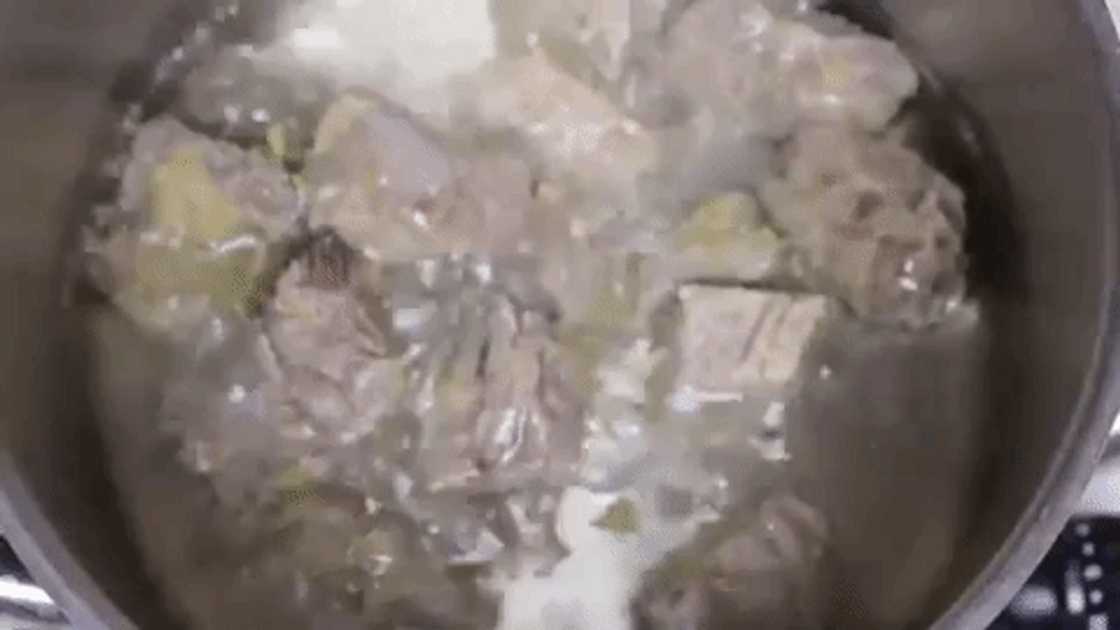
Source: UGC
- Turn off the stove and set aside the meat and broth to rest
- On the same pot, add onions and fry them until they become soft and brownish
- Add a few garlic cloves and cook all together with the onions for some minutes while stirring continuously.
- Add the meat and let it simmer on low heat for about an hour.
- Blend tomatoes and the rest of the garlic until they form a thick paste. Transfer them to a separate bowl
- In a pan, saute some oil over medium or low heat
- Add the onion paste and cook until the water evaporates and they start turning brown
- Pour in the tomato puree then add in some salt and add other spices
- Add the meat and broth then cook for 15-20 minutes while occasionally stirring until the stew turns deep red
- Add in the rice, vegetables and just enough water to cover the mixture
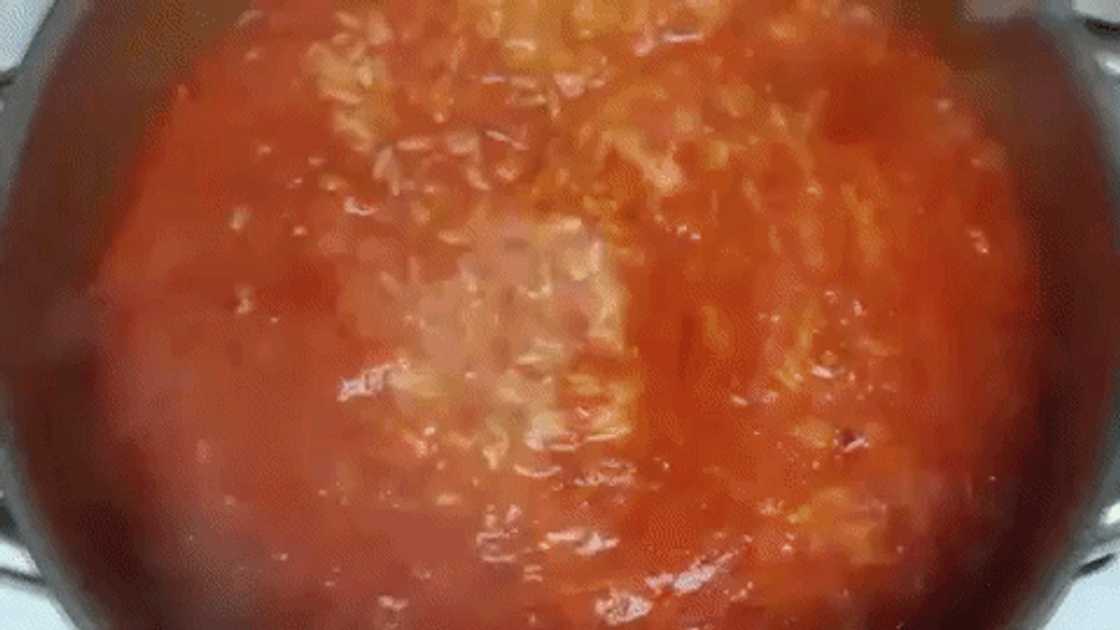
Source: UGC
- Bring the mix to boil then cook on low or medium heat for 25-30 minutes
Once all the water has evaporated from the rice, you can now serve it with your favourite soft drink or juice.
Now you know how to make jollof rice! This is one of the best Ghanaian food recipes! Try it out with different cuts of meat or fish to bring out different tastes.
History of jollof rice in Ghana and nutritional value
Jollof rice Ghana is a traditional meal. Its name originally comes from the word Wolof, which refers to an ethnic group from Senegal, southern Mauritania, and The Gambia. The dish is now among the most popular African cuisines in Africa and the rest of the world. It can be served with different dressings according to anyone’s popular taste.
READ ALSO: Papa's Pizza contact number, branches, delivery options
The main ingredients of the dish are rice and tomatoes. The meat depends on what you prefer or where you are taking it from. For example, the coastal regions of Ghana prefer to serve it with fish, while the interior areas will serve it with meat.
Primary nutrients in jollof are carbohydrates and protein. These carbohydrates are from rice while the proteins are derived from the cut of meat that you have decided to go for. Tomatoes and vegetables contribute a range of minerals that are useful to the body.
Jollof rice is one of the healthiest dishes in Africa. This partly attributed to the fact that it doesn’t require a lot of cooking oil to prepare. With the traditional jollof rice Ghana recipe above, you should find it easy to make the meal. Your loved ones will appreciate you more the moment when you spare some time to prepare for them nutritious and delicious rice.
READ ALSO: Best groundnut soup and fufu Ghana recipe
READ ALSO: Why you need to consume avocado more often
Source: YEN.com.gh

